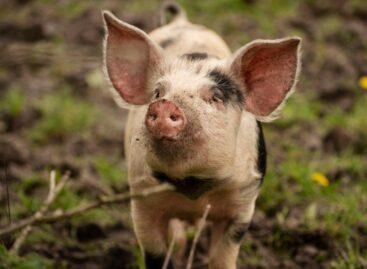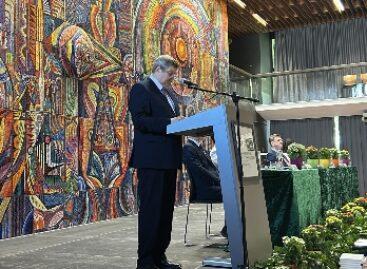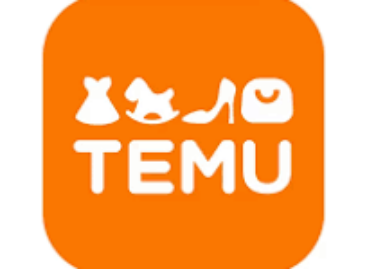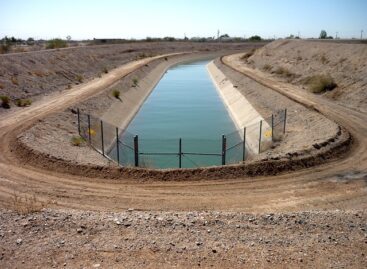This is how cattle can be moved between the member states of the European Union
In order to prevent the spread of animal diseases, many aspects of the keeping and movement of bovine animals are regulated by Regulation 2016/429/EU of the European Parliament and of the Council on infectious animal diseases (Animal Health Act) and its tertiary regulation.
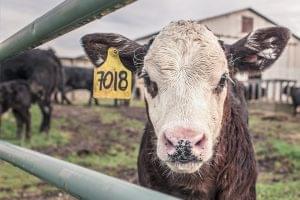
(Photo: Pixabay)
Criteria before and during delivery
Regulation 2019/2035/EU establishes rules for facilities keeping terrestrial animals and the traceability of these animals within the EU. As a general rule, establishments and suppliers must be registered by the competent authority. Only bovine animals that come from a registered or authorized facility may be transported to another Member State.
More information on reporting cattle keeping: https://portal.nebih.gov.hu/enar
More information on licensing as a transporter of live animals: https://portal.nebih.gov.hu/-/eloallat-szallitokent-torteno-engedelyezes-kervenyezese
The animal health requirements for the intra-EU movement of bovine animals are determined by Regulation (EU) 2020/688. These rules and risk mitigation measures ensure that the movement of animals does not pose a significant risk for the spread of diseases affecting human or animal health.
Animals must be transported directly from the facility of origin to the place of destination. Deviating from this, animals can also be collected in facilities approved by the competent authority. (Regulation 2016/429/EU Article 94(1)(a))
More information about facilities authorized to collect hooves: https://portal.nebih.gov.hu/-/patasok-ossegyujteset-vegzo-letesitmenyek-engedeleyezesenek-felltelei
Economic operators may only transport bovine animals to another Member State if the conditions described in Article 10 of Regulation 2020/688/EU are met (e.g. animal and public health guarantees for certain diseases).
An establishment, a region or the entire territory of a Member State may achieve disease-free status in accordance with the requirements set out in Delegated Regulation 2020/689/EU in order to facilitate trade. The list of Member States and regions declared free from certain diseases, such as bovine tuberculosis, bovine brucellosis or rabies (and other) diseases, or participating in an eradication program, is contained in Implementing Regulation 2021/620/EU.
More information on Hungary’s animal health status: https://portal.nebih.gov.hu/kitoresek-es-mentessegek
For the transport of cattle (CN code: 0102) between Member States in the TRACES NT system, the following certificates can be selected according to the destination:
BOV-INTRA-X for breeding and maintenance: (according to Regulation 2021/403/EU Annex I, Chapter 1)
For BOV-INTRA-Y cutting: (according to Annex I, Chapter 2 of Regulation 2021/403/EU)
Before sending the animal health certificate, the regionally competent official veterinarian certifies that the animals meet all the requirements for transport between Member States. Economic operators can create this document themselves in order to present it to the official veterinarian. The certificate accompanies the animals during the entire transport.
More information about the TRACES database: https://portal.nebih.gov.hu/traces-allat
Destination criteria
Regulation 2016/429/EU Article 127
Operators of establishments and slaughterhouses receiving land animals kept in other Member States must check the animals, their identification and the completeness of the documents. If any irregularity is detected, they must inform the competent authority of the destination. In this case, the animals must be isolated until the competent authority advises on further action.
Since there are no border controls for movements between Member States, in accordance with Regulation (EU) 2017/625 on official controls, non-discriminatory spot checks are carried out en route and at the destination to verify that the shipments comply with the guarantees contained in the animal health certificate.
https://food.ec.europa.eu/animals/live-animal-movements/bovine-animals_en#movements-within-the-union
Nébih
Related news
African swine fever outbreak in Croatia continues to pose a risk
According to the information provided by the Croatian Ministry of…
Read more >At the forefront of the domestic food industry for more than half a century
The future of the food industry is shaped by young…
Read more >Nébih: A grape disease called golden yellows has also appeared in the Villány region
The grapevine disease known as golden yellows has also appeared…
Read more >Related news
Temu has already targeted the European food market
The Chinese-rooted Temu is posing an increasingly serious threat to…
Read more >Irrigation water resources equivalent to one-third of Lake Balaton are available
Despite the extraordinary drought and lack of precipitation, we can…
Read more >Free irrigation water provided to farmers is a key element in the fight against drought
Free irrigation water provided to farmers is a key element…
Read more >
